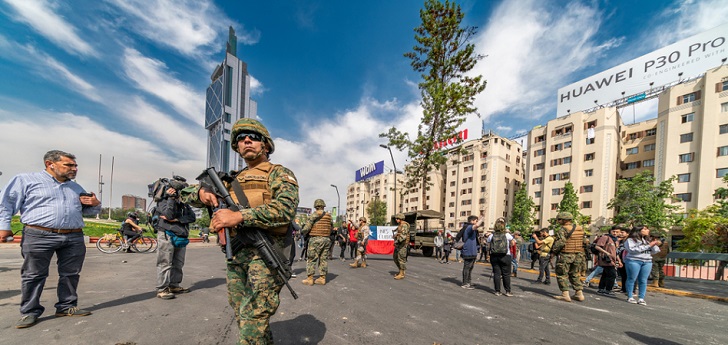London, Hong Kong or Santiago: the cities at risk among the hottest destinations for retail
Most of the indicators used for the Hot Retail Cities 2019 report correspond to 2018, so the conflicts taking place in the world in 2019 or the 2020 election calendar have not yet impacted on their position in the global ranking.

Elections, instability, economic recession or breaking trade agreements. These are some of the worst scenarios for a retailer when venturing into a new market and some of the causes that may affect the charm of a city to drop. In an environment hit by uncertainty, phenomena such as Brexit or protests against the Government affects cities like London, Hong Kong or Santiago, while the 2020 election calendar puts states of US at risk.
In its second edition, Hot Retail Cities 2019 report, prepared by Mds and sponsored by Tendam, analyses once again the suitability of the world’s top cities for retail based on fifty key indicators. In this edition, New York repeats as the hottest city, followed by Los Angeles and, thirdly, Tokyo.
Will they keep their positions in 2020? Which are the most threatened cities? After a few days ago Boris Johnson won the elections in the United Kingdom and speeded up Brexit, British cities included in the ranking (London, Birbimgham and Manchester) will be at risk to keep their positions as the most attractive cities for retail.
London is in the tenth position of the ranking
London is in tenth position in the global ranking and as the first European city for retail. However, it should be borne in mind that the report, prepared mainly with data from 2018, does not take into account the impacts of Brexit that have begun to take place and those that will follow after the United Kingdom’s departure from the European Union.
Hong Kong is also one of the most at risk places for retail. The city, which has historically been one of the key markets for fashion, is losing its appeal due to the pro-democracy protests in which it has been immersed for several months. The protests began in March and had no impact on the economic evolution of the special administrative region of China in 2018, as instead they are having it this 2019.
Earlier this month, Hong Kong Finance Secretary Paul Chan said the city could register a budget deficit during this fiscal year, the first in fifteen years. In addition, the economy will shrink by 1.3% in 2019 compared to the previous year.
Presidential elections in the United States could endanger American cities that appear in the ranking
China’s general elections in the next year could also affect the situation of other cities listed in the report. This is the case of Shanghai, which is in the ninth position; Beijing, at number 19 of the ranking, or Shenzhen, at number 32.
On the other hand, Santiago de Chile is located at position 67, ahead of Mexico City and placing itself in the first position of hottest cities for retail in Latin America.
However, the disturbances in the country since last October jeopardize the situation of the Chilean capital in the ranking. In addition, the Latin American country will hold municipal elections next year, which could also influence its outcome in the ranking.
Election calendar will also add uncertainty in cities such as New York, Boston or Miami, along with the rest of the US cities included in the ranking, due to the upcoming presidential elections in North America. The re-election of Donald Trump, currently undergoing an impeachment process, could in this case generate as much instability as the opposite, depending on his opponent.
Chile will hold municipal elections next year
Hot Retail Cities report 2019 aims to give a general image about the conditions that a city presents as a potential market for an international retail company. For this, the research takes into account the main criteria that, in general terms, these sorts of companies value when considering a city.
The report offers elements of analysis to consider the conditions for trade presented by a total of one hundred cities around the world. According to these characteristics, the document estimates the qualification of each of the cities for specific retailers.
Demography, economics, politics, socio-economic environment, tourism, retail, fashion, air quality and trendy cities are the eight major areas that have been studied to rate these cities, taking into account criteria such as population, wealth, the growth of the Gross Domestic Product (GDP), the minimum wage, tariff barriers, airport traffic, the number of tourists or the entrepreneurial climate.
The different indicators, measured through a wide plurality of prestigious public and private sources (from the World Economic Forum to the United Nations or The Heritage Foundation), are weighted according to their direct impact on trading activity. Thus, Hot Retail Cities establishes the ranking of the 100 most desirable cities for a retailer among the around 150 cities analysed.


info@themds.com
Validation policy for comments:
MDS does not perform prior verification for the publication of comments. However, to prevent anonymous comments from affecting the rights of third parties without the ability to reply, all comments require a valid email address, which won’t be visible or shared.
Enter your name and email address to be able to comment on this news: once you click on the link you will find within your verification email, your comment will be published.